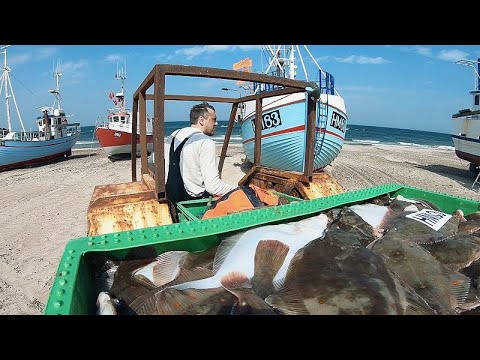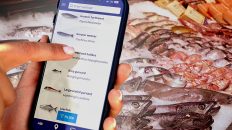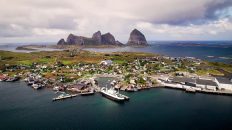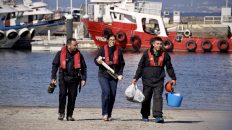Jan Olsen, Chairman, Association of Thorupstrand Fishermen: “My father was a fisherman. It’s in our veins, in our blood.”
Eleven hours on a rough sea, day after day. The three-men crew hauls in their nets at the north-western coast of Denmark. Today’s catch — 1500 kilos of plaice. They say it used to be more before large beam trawlers damaged the seabed.
Jan Olsen, Chairman, Association of Thorupstrand Fishermen: “Trawlers are destroying the bottom. We’re using nets — they just stay on the bottom for one or two days, and we pull them up again — they don’t destroy anything.”
Landing on a sand beach would shatter most modern vessels — but not these small oaken boats, built in this area since before the Viking Age. With its resilient wooden fleet, the fishing village of Thorupstrand withstands more than just forces of nature.
Denis Loctier, Euronews: “Artisanal fisheries play a crucial role in many EU regions. In the Mediterranean and Black Sea they represent over 80% of the total fishing fleet and employ over 60% of the total workforce within the sector. The European Union recognises their significance: over seven years, small-scale fisheries received around 210 million euros of public funding for their marketing, diversification and other projects”.
Denmark lost many of its independent fisheries a decade ago when it chose to assign fishing quotas to boat owners as private property. Big companies were all too eager to buy out these quotas. Market prices skyrocketed, persuading small owners to sell their boats and leave the trade.
Thomas Højrup, Chairman, Thorupstrand Coastal Fishing Guild: “In the first year, 25% of the fleet disappeared. In the first year! And in the first two years, the price of that kind of boat increased 1000%.”
At these prices, young fishermen couldn’t afford to enter the trade that became increasingly dominated by the big industry. Coastal villages were losing their boats and turning into ghost towns. Fearing for their future, Thorupstrand fishermen decided to take action.
Mathilde Højrup Autzen, Social anthropologist, Center for sustainable life modes: “They had a lot of meetings and discussions, and the majority of them decided to try to establish a cooperative, try to buy quotas up together and share them in common, and enable all young fishermen to participate in the cooperative and share these quotas. And that’s what they did.”
By teaming up, the local community safeguarded its fishing rights and preserved its traditional ways — including the wooden boat-making, famous in Denmark and abroad.
Pipsen Monrad Hansen, Researcher in small-scale fisheries, Center for sustainable life modes: “A lot of people coming here are just taking their hands to it and feel it…”
European funding helped to open the boatyard that builds new fishing vessels and trains craftsmen, supporting local economy.
Pipsen Monrad Hansen, Researcher in small-scale fisheries, Center for sustainable life modes: “It’s not only fishermen — it’s boat builders, electricians, engines and all kind of stuff — they create jobs there. And also this shipyard and things that we’re doing here also creates some tourism — people want to come here and see it.“
Sustainable food is trendy, and that’s helping the business too. This guild-managed shop and restaurant, also a part of the new EU-funded infrastructure, sells freshly caught fish. Unlike big vessels, small boats don’t spend weeks at sea and their nets don’t damage the catch, so the value of this fish is very high.
Janni Olesen, Shop owner: “The difference between fish caught by trawling, conventional fishing, and the fish that we sell is maybe 10-20 kronas (2€) per kilo. I don’t think it’s expensive — I think the price is fair, compared to how much work goes into it, and how great the product is.”
The village even managed to expand its sales to the heart of the Danish capital, selling fresh fish on a converted boat moored in the most picturesque hotspot of Copenhagen.
With sales figures growing, Thorupstrand fishermen are getting better return for their catch — while at the same time raising awareness of their efforts to protect the sea and preserve their community.
Simon Biggas Møller, Chef and fish dealer, HM800 Jammerbugt: “That is sustainability for the environment, but also sustainability for the small fishing villages which on the Danish coastline have almost died out completely. I hope for them to survive — I’m pretty sure they will, and in the best case maybe they can inspire similar towns to keep up the good work.”





